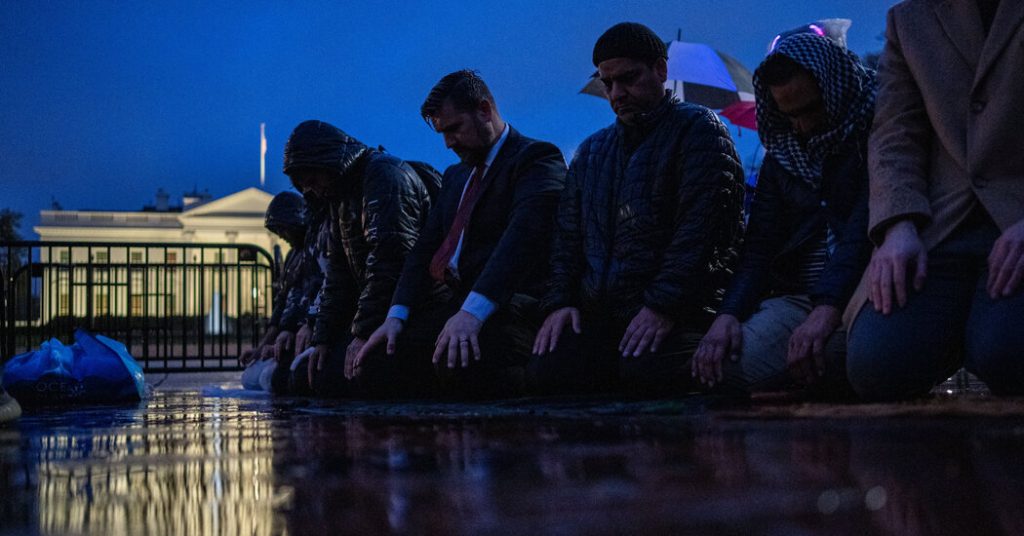The Biden administration faced backlash from Muslim community leaders who declined an invitation to a Ramadan dinner at the White House due to their distress over President Biden’s support for Israel’s war in Gaza. The White House quickly pivoted, holding a pared-down meal for staff and a separate meeting for Muslim community leaders. During the meeting, individuals who had treated patients in Gaza spoke to the president about the devastating impact of the war, with one doctor warning of an impending ground invasion that would lead to a “bloodbath and a massacre.”
Dr. Thaer Ahmad, a Palestinian American doctor, handed President Biden a letter from an 8-year-old girl in Gaza who had lost her entire family in the war. The girl’s letter pleaded for an end to the violence and expressed a desire for safety and a normal childhood. After speaking for six minutes, Dr. Ahmad decided to walk out of the meeting in order to convey the frustration and anger felt by the community. Despite the tense atmosphere, the president expressed understanding and respect for Dr. Ahmad’s decision to leave.
The Biden administration has faced criticism from various constituencies in the president’s base, including young people, Black voters, and progressives, over its handling of the conflict in Gaza. Karine Jean-Pierre, the White House press secretary, acknowledged the deep pain felt by many in the Arab and Muslim communities and reiterated the president’s commitment to securing an immediate cease-fire and increasing humanitarian aid to Gaza. The administration has been holding meetings with different groups, both internally and externally, in an effort to address the widespread indignation over the war.
During the meeting with Muslim leaders and community members, attendees shared their experiences from the ground in Gaza, including passing around photos of children affected by the conflict. Both President Biden and Vice President Kamala Harris expressed a desire for the war to end as soon as possible. However, when asked about calling for an immediate and permanent cease-fire, Biden mentioned Israeli concerns about hostages complicating the situation. Despite the challenges, the administration remains committed to working towards a resolution that prioritizes the well-being of innocent lives on both sides of the conflict.
The meeting with Muslim leaders and community members highlighted the growing tensions and divisions within the Muslim community over President Biden’s handling of the crisis in Gaza. Salima Suswell, the CEO of the Black Muslim Leadership Council, expressed the moral dilemma felt by some members of the Black Muslim community in supporting the president despite the ongoing conflict. Attendees discussed the impact of the war on oppressed and dehumanized populations, drawing parallels to the experiences of Black people historically. Despite the difficult conversations, the administration reiterated its commitment to addressing the concerns and needs of various communities affected by the conflict.
In conclusion, the refusal of Muslim community leaders to attend the White House Ramadan dinner underscored the deep divisions and challenges faced by the Biden administration in navigating the crisis in Gaza. While efforts are being made to engage with different groups and address the widespread indignation over the war, tensions and disagreements persist within the Muslim community and among various constituencies. Moving forward, it will be crucial for the administration to continue working towards a resolution that prioritizes peace, justice, and the well-being of all those affected by the conflict in Gaza.


